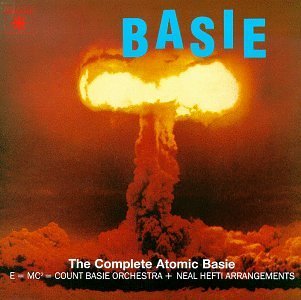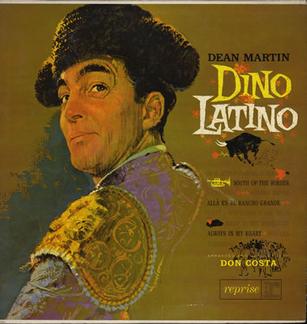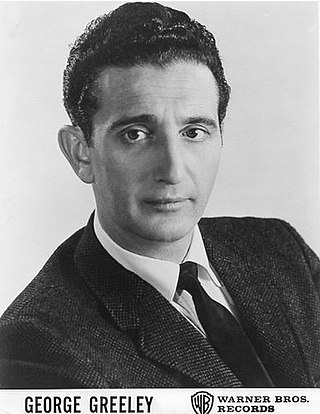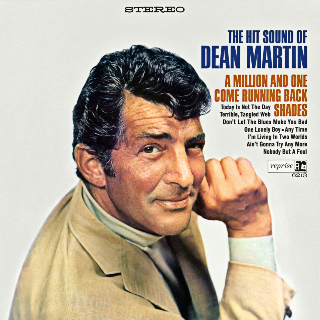
Neal Paul Hefti was an American jazz trumpeter, composer, and arranger. He wrote music for The Odd Couple movie and TV series and for the Batman TV series.

Axel Stordahl was an American arranger and composer who was active from the late 1930s through the 1950s. He is perhaps best known for his work with Frank Sinatra in the 1940s at Columbia Records. With his sophisticated orchestrations, Stordahl is credited with helping to bring pop arranging into the modern age.
Hot Butter were an American instrumental band fronted by the keyboard player and studio musician Stan Free. The other band members were John Abbott, Bill Jerome, Steve Jerome, Danny Jordan and Dave Mullaney. They were best known for their 1972 version of the Moog synthesizer instrumental song "Popcorn", originally recorded by its composer, Gershon Kingsley, in 1969. The track became an international hit, selling a million copies in France, 250,000 in the United Kingdom, and over two million worldwide.

Sinatra And Swingin' Brass is the twenty-sixth studio album by American singer Frank Sinatra. Released in 1962, it is Sinatra's fifth album released by Reprise Records.

A Man and His Music is a 1965 double album by Frank Sinatra. It provides a brief retrospective of Sinatra's musical career. The album won the 1967 Grammy Award for Album of the Year.

The Count Basie Orchestra is a 16- to 18-piece big band, one of the most prominent jazz performing groups of the swing era, founded by Count Basie in 1935 and recording regularly from 1936. Despite a brief disbandment at the beginning of the 1950s, the band survived long past the big band era itself and the death of Basie in 1984. It continues under the direction of trumpeter Scotty Barnhart.

Things Ain't What They Used to Be is a 1970 studio album by the American jazz singer Ella Fitzgerald - the final album that Fitzgerald recorded on the Reprise Records label. The album was re-issued on CD with alternative artwork in 1989. It was released together on one CD with Ella's first album recorded for Reprise label, Ella.

The Atomic Mr. Basie (originally called Basie, also known as E=MC2 and reissued in 1994 as The Complete Atomic Basie) is a 1958 album by Count Basie, featuring the song arrangements of Neal Hefti and the Count Basie Orchestra. Allmusic gave it 5 stars, reviewer Bruce Eder saying: "it took Basie's core audience and a lot of other people by surprise, as a bold, forward-looking statement within the context of a big-band recording." It is included in the book 1001 Albums You Must Hear Before You Die, Will Fulford-Jones calling it "Basie's last great record." It was voted number 411 in the third edition of Colin Larkin's All Time Top 1000 Albums (2000).

Bright and Shiny is an album released by Columbia Records, featuring Doris Day backed by Neal Hefti's orchestra, on March 20, 1961. It was released in two forms; a monaural LP and a stereophonic LP. A song of the same name was composed especially for this album. Neal Hefti directed the orchestra.
"Ridin' High" is a 1936 popular song written by Cole Porter, for his musical Red, Hot and Blue, where it was introduced by Ethel Merman.

Charlie Parker with Strings is the name of two separate albums by jazz musician Charlie Parker, released in 1950 on Mercury Records. It is also the name of a 1995 compilation album released by Verve Records, containing all the tracks from both the 1950 albums, as well as additional material. The sessions place Parker in the context of a small classical string section and a jazz rhythm section, rather than his standard bebop quintet. They were Parker's most popular sellers during his lifetime, and were admitted to the Grammy Hall of Fame in 1988.

Dino Latino is an album by Dean Martin. Recorded during August 1962, the album is a collection of Latin standards and popular songs composed in the same vein.

Ready Steady Who is the first EP by the Who, released on 11 November 1966, about a month prior to their album A Quick One. The title refers to a Ready Steady Go! TV special the band had recently appeared in, but the EP contains different recordings from those performed on the TV show.

"Batman Theme", the title song of the 1966 Batman TV series, was composed by Neal Hefti. This song is built around a guitar hook reminiscent of spy film scores and surf music. It has a twelve bar blues progression, using only three chords until the coda.

The Movie Song Album is a 1966 studio album by Tony Bennett. The album consists of songs from films, opening with the theme from The Oscar, in which Bennett had recently appeared. With this project of such high quality of song material and collaborators, he was to describe the album in his autobiography as his "all time favorite record".

Sinatra Reprise: The Very Good Years is a 1991 single disc compilation taken from the four disc box set The Reprise Collection, a 1990 box set by the American singer Frank Sinatra. For many years, this was the only collection of Sinatra's Reprise work on one disc until 2008's collection Nothing But The Best. The Very Good Years reached #98 on the Billboard Top 200 album charts in 1991.

George Greeley was an Italian-American pianist, conductor, composer, arranger, recording artist and record producer who is known for his extensive work across the spectrum of the entertainment industry. Starting as an arranger and pianist with several notable big bands in the 1940s, he segued into the Hollywood radio scene, working on several nationally broadcast variety programs. After conducting an Army Air Force Band during World War II, he was hired by Columbia Pictures as a staff pianist and orchestrator. He worked as pianist on several hundred motion pictures, worked with many famous composers orchestrating their soundtrack compositions, and created original compositions of his own in several dozen movies. It was Greeley's hands that performed the piano parts that Tyrone Power mimed in The Eddy Duchin Story. Concurrent with his work at Columbia Pictures, George Greeley also worked at Capitol Records as music director, pianist, and conductor for many artists such as Gordon MacRae, Jane Powell, Jo Stafford, Frankie Laine, and Doris Day. He was hired in the late 1950s by the newly established Warner Brothers Records. George Greeley arranged, orchestrated and performed as primary artist for a series of hit recordings entitled "Popular Piano Concertos." As music tastes changed in the late 1960s, Greeley had already moved into television, composing themes and music for popular TV series like My Favorite Martian,The Ghost and Mrs. Muir,Nanny and the Professor, and Small Wonder. He performed as featured piano soloist and as guest conductor in concert appearances around the world. He died from emphysema at age 89 in Los Angeles, California.

Robin and the 7 Hoods is a 1964 12" vinyl LP album originally issued by Reprise as No. F-2021. Wrongly assumed to be a true soundtrack album of the film Robin and the 7 Hoods, it was advertised as "Original score from the motion picture musical comedy" which is correct. The film was made in November/December 1963 and the album was subsequently recorded at United Recording, Hollywood, in April 1964. The scene with Frank Sinatra's vocal of "I Like to Lead When I Dance" was dropped, so only the background instrumental can be heard in the film.

Mel Tormé's California Suite is a 1957 studio album by Mel Tormé, of his California suite.

The Hit Sound of Dean Martin is a 1966 studio album by Dean Martin arranged by Ernie Freeman and Billy Strange.


















